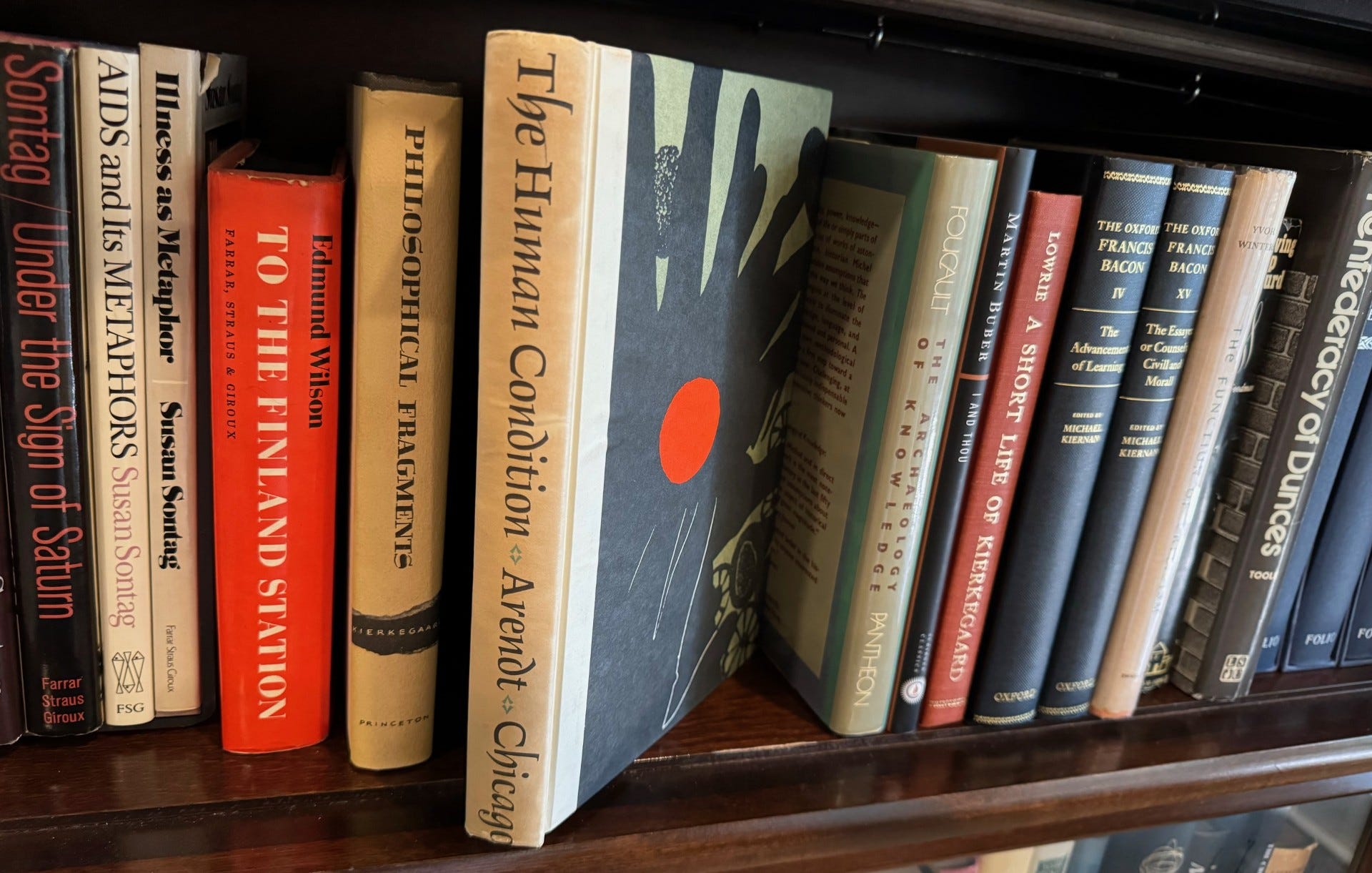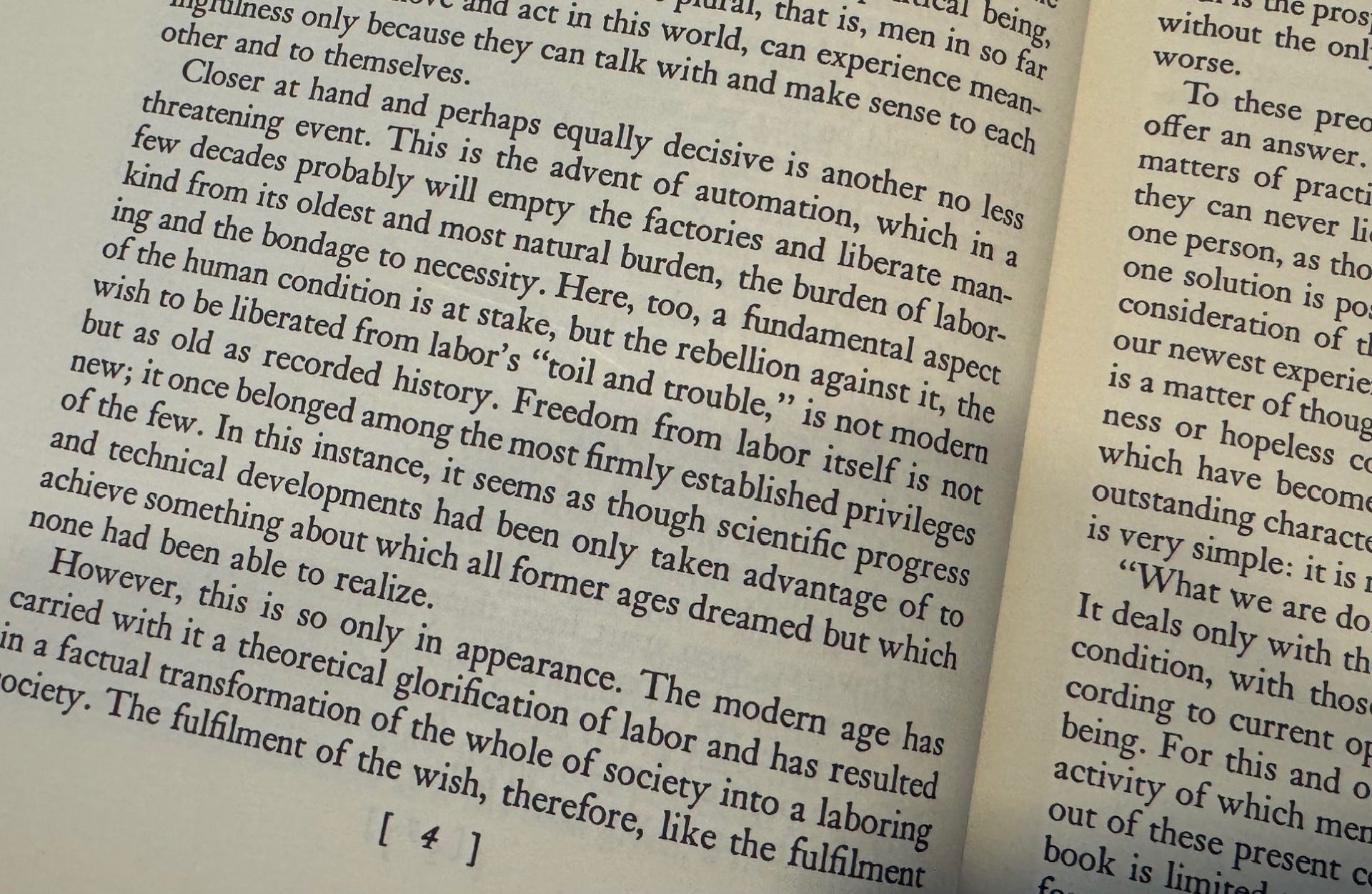What You Can Learn from Just Seven Pages by Hannah ArendtShe wrote this book in the 1950s, but it's frighteningly relevant right nowI recently shared a list of 26 essential books about technology. But there was an unusual twist to this list—none of these books were written by technologists. They all came from wise humanists, philosophers, novelists, and social thinkers. This is quite unconventional nowadays—STEM rules everything and everywhere, while the humanities are in crisis. But these are the books I’d assign if I taught in Stanford’s entrepreneur program. They would give techies a mind-expanding vision from outside the Silicon Valley echo chamber. These books would guide them to concepts and solutions that tech, on its own, will never deliver. Back in August, I promised that I’d write about some of the individual books on my list. Today I’m doing just that—offering a rapid-fire overview of some insights from Hannah Arendt, one of the deepest thinkers of the 20th century. If you want to support my work, please take out a premium subscription (just $6 per month).What You Can Learn from Just Seven Pages by Hannah ArendtAs many of you know, I often study predictions made 50 or 100 years ago, and try to see how accurate they were. I have done this in the past with J.G. Ballard, Arnold Mitchell, Chris Anderson, Paul Goodman, Oswald Spengler, and others. Today I turn my attention to an extraordinary analysis from Hannah Arendt’s book The Human Condition (1958). It’s so accurate, it’s almost scary. Arendt is a constant source of inspiration for me. In this book, she warns us about technologists who are dangerous becuse they are so completely out-of-touch with their humanity. She wrote this book in the mid-1950s, but you might think she was living in Silicon Valley today. Here’s what she says about these dangerous individuals in the opening pages of her 1958 book:
I read all this in astonishment. It sounds like Arendt had anticipated my recent article about Silicon Valley turning into a creepy cult—and grasped this potentiality more than 60 years ago. In other word, she saw all this even before Silicon Valley had a name or a mission. Arendt’s entire book is filled with insights. I won’t try to summarize everything, but I will share a few more of her provocative views. Here are 12 more key passages from The Human Condition: 1.
2.
3.
4.
5.
6.
7.
8.
9.
10.
11.
12.
Does any of that ring true today? Let me remind you that all this was written in the mid-1950s. I will have more to say in the future about other books on my subversive tech reading list. But even this quick survey of Hannah Arendt’s worldview shows how much we gain from adopting a larger vision of technology from a wise and compassionate human standpoint. You're currently a free subscriber to The Honest Broker. For the full experience, upgrade your subscription. |
Search thousands of free JavaScript snippets that you can quickly copy and paste into your web pages. Get free JavaScript tutorials, references, code, menus, calendars, popup windows, games, and much more.
What You Can Learn from Just Seven Pages by Hannah Arendt
Subscribe to:
Post Comments (Atom)
When Bad People Make Good Art
I offer six guidelines on cancel culture ͏ ͏ ͏ ͏ ͏ ͏ ͏ ͏ ͏ ͏ ͏ ͏ ͏ ͏ ͏...
-
code.gs // 1. Enter sheet name where data is to be written below var SHEET_NAME = "Sheet1" ; // 2. Run > setup // // 3....




No comments:
Post a Comment